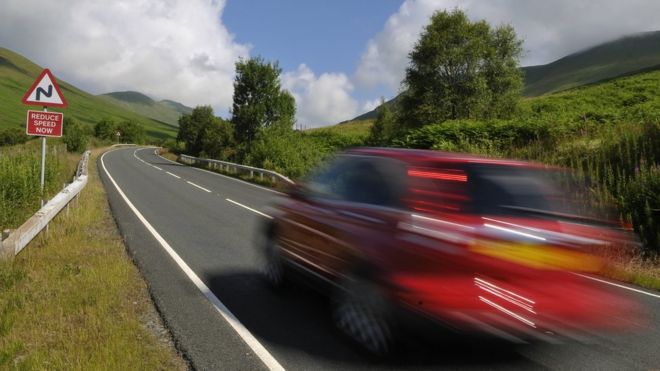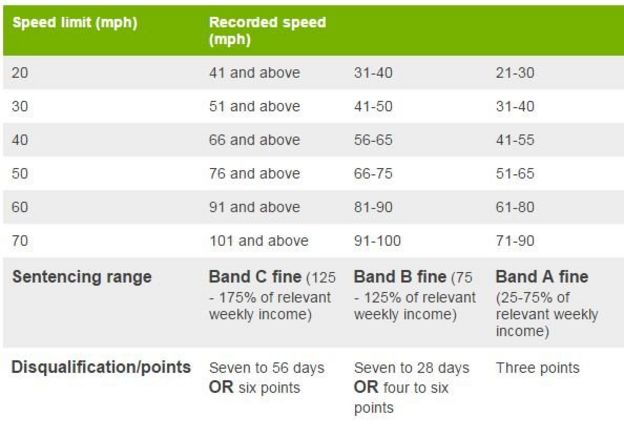
Tougher punishments for the most serious speeding offences have come into force in England and Wales. Under new guidelines, fines for drivers caught doing 51mph in a 30mph zone or 101mph on a motorway will start from 150% of weekly income, rather than the previous level of 100%. The Sentencing Council said it wanted a “clear increase in penalty” as the seriousness of offending increases. Motoring groups have broadly welcomed the new guidelines for magistrates.
‘Extreme offenders’
The new measures follow responses to a consultation. It said previous guidelines did not properly take into account the increase in potential harm that can result as speed above the limit rises. Fines will also be increased for when motorists drive at 41mph or faster where there is a 20mph limit. However, because the maximum fines allowed by law remains the same, speeding drivers cannot be fined more than £1,000 unless the offence takes place on a motorway, where the limit is £2,500.
Some 244 people were killed in crashes that occurred when a driver was breaking the speed limit on Britain’s roads in 2015.

AA president Edmund King said it was right that “extreme offenders” were punished “severely”.
He added: “Responsible drivers will welcome the changes coming into force today.
“The majority of drivers who keep to the correct speed, as well as driving to the conditions, won’t be affected.
“It is only those who deliberately drive dangerously who will end up in court.”
Do magistrates have to stick to the guidelines?
- Sentencing guidelines must be followed, unless a judge or magistrate feels it is not in the interests of justice to do so
- If a judge or magistrate believes that a guideline prevents the correct sentence from being given in an exceptional case, he or she can sentence outside of the guideline
- Guidelines set sentencing ranges within the maximum for the offence as set out in current legislation
- When legislation changes, guidelines are amended as appropriate
Source: Sentencing Council
RAC Foundation director Steve Gooding said while the new measures “underline how seriously the courts take speeding offences”, the limit on fines means there is not a “level playing field”.
He also questioned whether police officers have enough resources to ensure the tougher punishments have an impact on road safety.
Mr Gooding said: “While we broadly support linking the amount of the penalty with income, the cap on the level of fines means that this link is broken for high-income drivers – hardly a level playing field.”
Gary Rae, campaigns director for road safety charity Brake, said: “Toughening the fines and penalties for speeding is long overdue.
“I hope that magistrates ensure the new sentences are consistently applied.”
Sentence levels for less serious offences are not changing.
Source bbc.co.uk


Be the first to comment